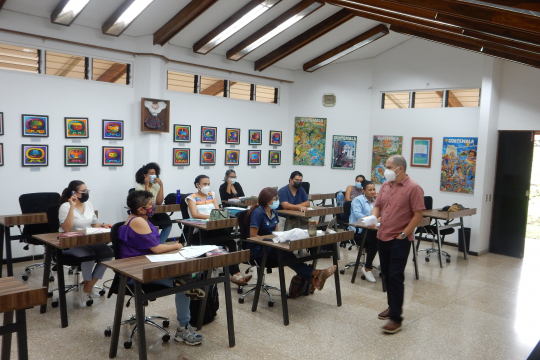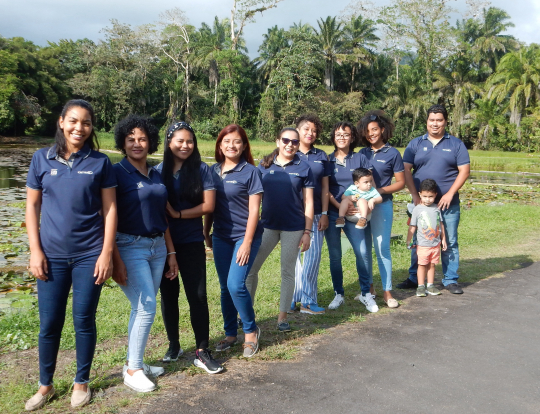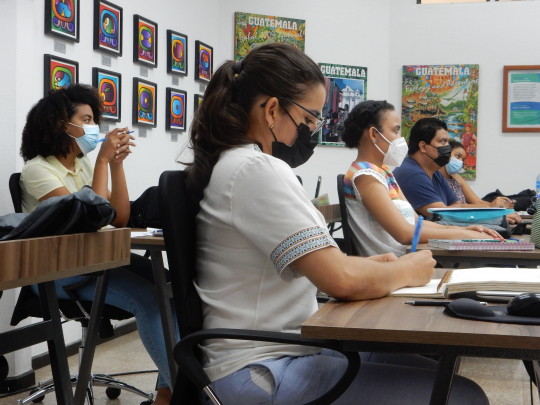Women from Latin American countries are increasingly entering the academic field of environmental economics. This is apparent at the Tropical Agricultural Research and Higher Education Center (CATIE), where eight out of nine new students in the International Master's Program on Economics, Development, and Climate Change, are women from El Salvador, Honduras, Mexico, Nicaragua, and the Dominican Republic.
Roger Madrigal, Director of EfD Central America, coordinates this master's program. He is proud to help reduce the gender gap in women's participation in academia and strengthen the capacities of young scholars to design and implement policy-impactful research.
Five countries represented
This year's master's students are Carmen Zabala, Jomayris Rosario, and Jafraisis Rosa, from Dominican Republic; Lipsa González and Crisly Joya, from Nicaragua; Jacqueline Lizeth López, from El Salvador; Jacqueline Cruz, from México, and Claudia Argueta, and Carlos Morán, from Honduras.
All of them will be studying and staying at the headquarters of CATIE, located in Turrialba, Costa Rica, where the postgraduate school is located.
Furthermore, seven women would like to pursue a Ph.D. degree to continue an academic and research career in environmental economics, or a related area.
Want to have an impact
Claudia Argueta wants to retribute to her country by studying the socio-economic impact on the coral reefs located around Roatan Island, on the Caribbean coast of Honduras.
"This area is used by the tourist sector, fisheries, and others, but little is done to educate people on the protection of the natural resources, and the appropriate management of plastic", said Argueta, who comes from La Ceiba, a coastal community of Honduras.
Jacqueline Cruz, from the state of Tabasco in Mexico, aims to continue a research career. When she returns to Mexico, she would like to influence policymakers or be a part of the team that creates policies on climate change. She would also like to influence policies on gender issues.
Jacqueline López, from San Salvador, El Salvador, has previously studied business administration, emphasizing environmental aspects.
"I am very interested in pursuing a research and teaching career. That is why I decided to study this master's program."
She would like to work as a university professor in El Salvador and be involved in research projects with an environmental and economic emphasis.
Network is important
Even though they have struggled to fulfill their dreams in the scientific or academic field due to a lack of understanding or prejudice regarding the role of women in society, the women on the master's program on environmental economics at CATIE are eager to let their voices be heard.
The governments and international cooperation agencies have been helpful in providing scholarships. Equally important for all the master's students at CATIE, is the contact with EfD researchers, access to publications, and networking opportunities that EfD Central America provides.
Written by: Marianela Arguello L.


